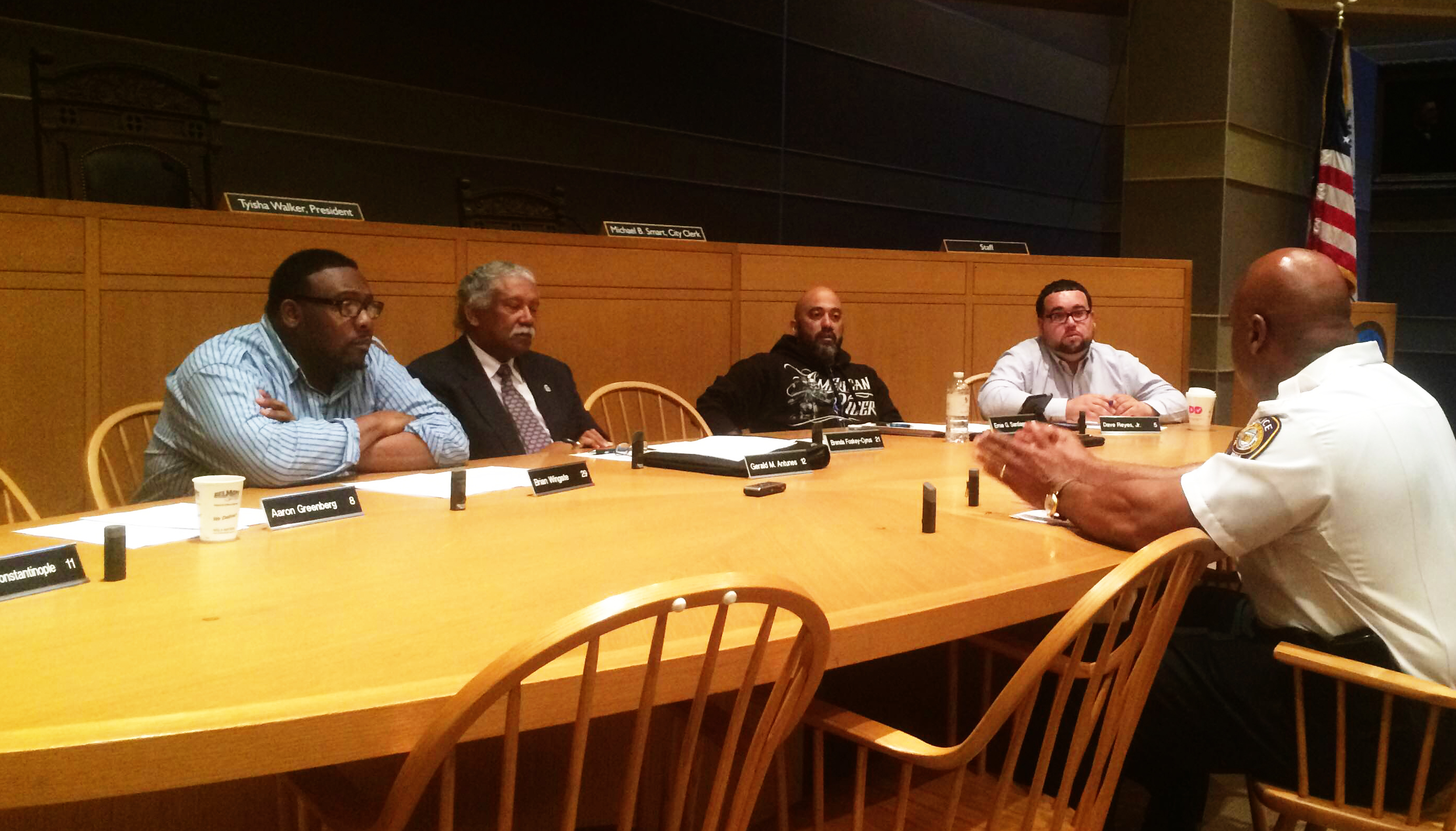
At a workshop Tuesday night, the Board of Alders’ Public Safety Committee welcomed a guest familiar to all Yale students: Yale Police Chief Ronnell Higgins.
Higgins came to City Hall as part of a discussion of public safety issues that also included testimony from interim New Haven Fire Chief Ralph Black. Despite its University affiliation, the Yale Police Department is a fully accredited police department in its own right, Higgins said. And as a New Haven police department, the YPD follows the tenets of the “community policing” philosophy that governs New Haven’s law enforcement strategy, Higgins added. Higgins was invited to the aldermanic Public Safety Committee meeting because the board was interested in being updated on the YPD’s work.
“We’re a police department in the city of New Haven and community policing is the way policing is done in this city,” Higgins said. “We’ve done that since 1894, so you see Yale Police officers not only in their cars, but on bikes and walking beats.”
The YPD operates in only a few of the city’s neighborhoods — parts of Dixwell and East Rock, as well as all of Downtown — but it operates in other respects like a full member of the city’s law enforcement community. Higgins said he usually attends weekly data-sharing CompStat meetings with the New Haven Police Department and sends an emissary whenever he cannot make the meeting.
Still, the YPD operates under slightly different rules from the NHPD. One of the main differences, Higgins said, is that the Clery Act requires the YPD to notify the Yale community of crimes that occur on campus, whereas the NHPD faces no such requirement.
Beaver Hills Alder Brian Wingate, a Yale employee in the Union-Management Partnership department and former chair of the Public Safety Committee, emphasized the breadth of Higgins’ role, which requires him to oversee all of Yale’s security services.
“The chief is being modest,” Wingate said. “He’s the public safety of Yale University. You’ve got to understand that. He’s not just the chief of police — he’s the public safety of the University.”
The YPD, Higgins said, is budgeted for 87 officers, but the department is currently down a few officers and working to hire more. Combined, sworn and civilian staff total 120 positions, not including Yale Security.
Committee Chair and Quinnipiac Meadows Alder Gerald Antunes noted that the YPD often acquires cutting-edge technology, like Segways and dashcams, before the NHPD is issued the devices. Higgins said that has a lot to do with the expectations of the University, as well as a desire to use new technology to increase the quality of community policing in Downtown and elsewhere.
Antunes also raised a concern with Higgins that reflects a sentiment shared by many New Haveners — that Yale students often seem blissfully unaware of their surroundings and engage in risky behavior on the city’s streets.
“It seems to us on the outside that students at Yale have no idea about walking out in front of cars, about riding their bicycles on the sidewalk,” Antunes said. “Some people say that’s just part of college life, but it seems to go a little bit further.”
Higgins said distracted driving is an enormous issue, and not just on university campuses. Arguing that the modern age is a “digitally distracted” era, he noted that he sits on the Yale Traffic Safety Committee, founded in 2011 after a medical student was struck and killed by a car on the campus of the Yale School of Medicine. And the YPD, he said, conducts forums with students throughout the year to discuss public safety.
Alders were largely positive about Higgins’ performance and the quality of the YPD. Hill Alder David Reyes said he had heard “great things” about the YPD and wondered how Higgins kept his officers happy, given the high level they operate at each day.
Ultimately, Higgins said, maintaining a high-quality police department is about synchronization, ensuring that all officers have the same goals and principles in mind.
“The success of any police department is, especially in these times, truly dependent on the behavior of the men and women on the front line,” Higgins said. “So us leaders, we have to be like orchestra conductors, knowing that everyone is going to be playing different instruments. We need to make sure they’re on the same sheet of music.”







